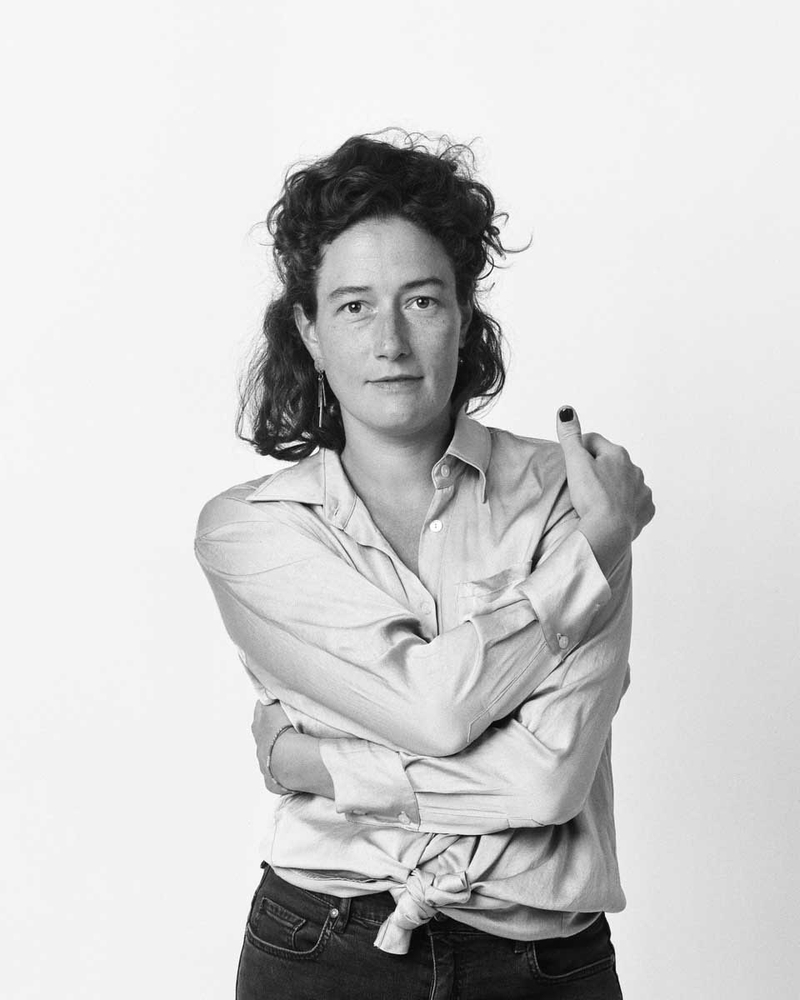About tapping into other horizons of perception
NEST |
Sara, you have a lot of experience in scenic work with singers, especially in connection with music theater premieres. Working with a finished score is nothing new for you, and you always work with music anyway. Were you familiar with the original text for Sagt der Walfisch zum Thunfisch by Carsten Brandau? Had you come across it as a play before?
Sara Ostertag I knew about it, but hadn't seen a performance yet.
What is the appeal and challenge for you?
What I like is the linguistic level, the language games. I think that's very nice. And I like the depersonalization of the characters. By that I mean that they are not defined by a fixed identity. And I also like the philosophical undercurrents of the play.
The play has a distinctly parable-like character. NOE's Ark is also a theater, isn't it? Which is nice in that you are opening our new venue with this production. Can you say a few more words about the philosophical level you are discovering?
It's about the question of how you define yourself through an outside. In other words, the demarcation between who I am or who I want to be and who my counterpart is, and what assumptions my counterpart has about who I am or am not. There are many such attributions among children, especially in the age group addressed, particularly when it comes to gender or parental language. Many identity-political questions already arise with six-year-olds. And this is exactly what is being dealt with here on an abstract level, which I find very exciting.
And at the same time on an extremely playful and physical level.
The location is not defined either. There are open identities and open playing spaces. This allows you to define the game processes and playing styles yourself.
You translate Brandau's language games into physical energy and choreographic, almost slapstick-like moments, which I believe not only, but especially children and young people can relate to extremely well. There were also concerns in the run-up to this project as to whether this language ping-pong might be too abstract..
The play differs from the classic German youth play, which we also like to call the problem play. Plays that were done a lot in the 90s and for which there were certain theaters, for example the Grips Theater in Berlin: plays that also make a very strong socio-political point. Here it's more about playful juggling - with language, with identities, with spaces..
Thierry and you already knew each other independently of this project, but this is the first time you've worked together.
Exactly.
How do you feel about his music?
He is a very interesting composer because he also thinks about the theatrical space. And he also knows a lot about humor. And I think it's good that he approaches the music with a high level of complexity. I think that's important both for the musicians and for the listener. Music with this kind of complexity develops its own tension. You can simply hear the difference. I find that particularly important in music theater for young audiences.
Listening to you now, I get the feeling that in your work on this piece you can also address the things that concern you as an adult. I have the feeling that you don't have any scissors in your head.
No. It would be absurd if I said I was creating something that wasn't interesting for myself. That wouldn't make sense. I have to make something that is interesting for me, but that I want the work to be able to speak to someone who doesn't share my horizon of perception. I think of people who are simply much younger than me, but they can also be people who can't see or hear.
I have the feeling that you share a utopian moment with Thierry and Carsten Brandau that is inscribed in the piece. Because unlike NOE, we should really try to reach everyone with the journey of our theater ark, to affect everyone, ideally to take everyone with us.
It's actually always about touching on other horizons of perception. But that can't mean that I exclude my own perception or my own interest. You could now break down this question in terms of cultural policy, because children's and young people's theater is still less well funded than so-called adult theater. Yet children's and young people's theater often works with world premieres, which, especially when they are still play developments, are much more complex than staging something that is present and already has a production history. I think that's a big misunderstanding.
